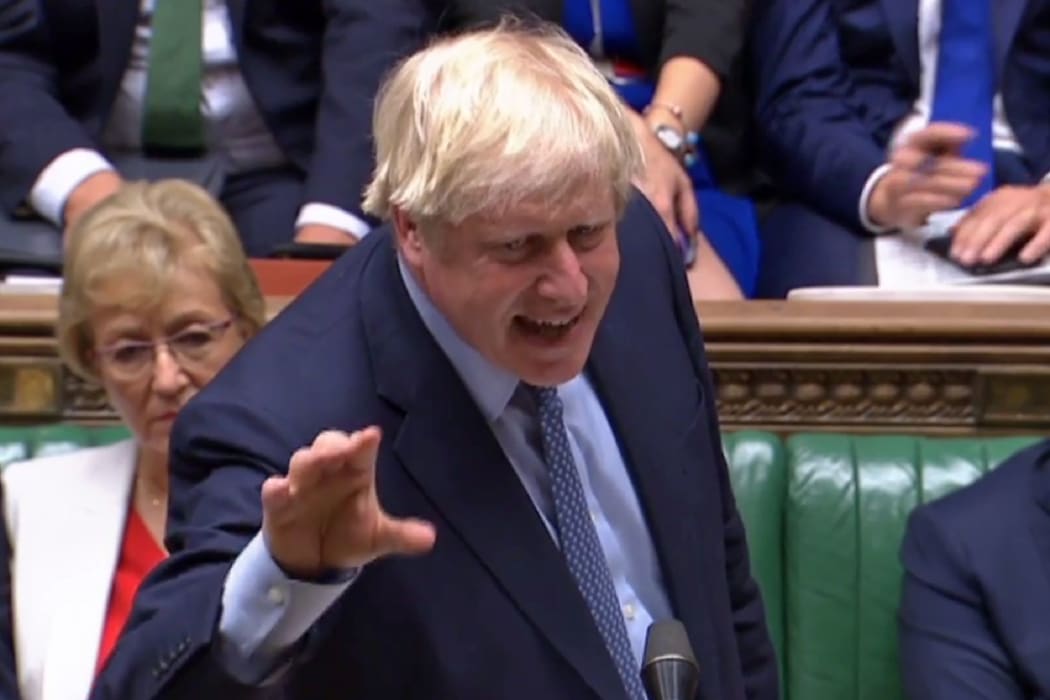For the third time, British Prime Minister Boris Johnson is attempting to call a snap election.
He's told British MPs he'll give them more time to debate his Brexit deal, but only if they agree to an election on December 12.
Both of Johnson's previous attempts to force an election had been defeated by MPs.
Meanwhile the European Union is set to decide Friday evening New Zealand time, whether to extend next week's deadline for the UK to leave the union.
But according to a British academic, parliament is unlikely to grant an election as it would need a two thirds majority in the house to proceed and the main opposition Labour Party is on a “hiding to nothing” given its current polling position.
Tim Bale, professor of politics at London's Queen Mary University says Johnson’s move would be a clever gambit were the opposition to fall for it.
“At the moment it doesn't look as if the opposition is going to fall for it. Obviously, there will be a lot of pressure particularly from the print media in this country, which is overwhelmingly skewed towards the Conservatives, on the Labour Party to accept the challenge.
“But I think looking at the Labour Party's position, it would be very unwise for Jeremy Corbyn the Labour leader to take the bait, and I would assume most of his MPs feel the same way.”
Johnson is understandably desperate to break the log jam in parliament, Bale says.
“Currently, the Bill is, if you like paused or stalled in Parliament, and he [Johnson] is worried about trying to take it through with the current configuration of MPs, because he's concerned that they might amend it in ways that, for him anyway, would render it on acceptable.
“So, this is a way Boris Johnson breaking the log jam on Brexit, but also getting him a majority that he can then take forward into the next five years.”
However, Labour has the prime minster in a tricky spot and is unlikely to give him an escape route, he says.
“It would be better, I think for them, and I think they think this is the case, to keep Boris Johnson where he is and keep him just where they want him, which is unable really to pursue a hard Brexit. And hopefully unable, they say anyway, to crash out of the European Union without a deal,” he says.
Labour will cop a few days of bad headlines if they block Johnson’s election move, he says, but that will not be a factor in any election campaign early next year.
“You have to remember that when eventually we do get to an election, and we will get to an election eventually, probably sometime in the spring if not before, then all that will be forgotten, because we'll be into an election at that point and no one's going to worry about the fact that Labour didn't walk into the trap a few months before.
“So I think if Labour were wise they’d bear a few days of bad headlines and being called nasty names for not going into an election, which they’re almost certain to lose.”
Nor is there like to be support in parliament for an early election from other opposition parties, he says.
“The Lib Dems aren't going vote for it. They don't want to do anything that risks giving Boris Johnson the chance to push through a very hard Brexit.
“The other party to consider is the Scottish National Party. Now, they actually would quite like an election, but I don't think they want to be seen to be facilitating Boris Johnson getting one, so I doubt they're going to support it anyway.”
Johnson has also alienated the Democratic Unionist Party, previously supporters of the government, who are unhappy with his withdrawal agreement, Bale says.
“The Conservatives seem to have lost the support of virtually all the parties in the House of Commons apart, of course, from themselves.”
The longer Johnson’s deal is scrutinised by parliament, the more it comes apart, says Bale.
“The Bill’s details are beginning to unravel a little bit and also, the Prime Minister's grip on the detail seems to have unravelled a little bit.”
He says that is why Johnson has tried to “railroad” it through parliament.
“One of the reasons, I assume, that the Conservatives wanted to railroad the Bill through was a to try and get it done before the 31st of October, and that's not going to happen now.
“And B because they didn't want people to look at it too carefully, but of course that scrutiny is happening now and there are all sorts bits and pieces in the Bill that people are beginning to say ‘this isn't going work, this isn't what you promised’.
“I'm not entirely sure that this Bill could go through any way, certainly in its present state without considerable numbers of amendments.”


